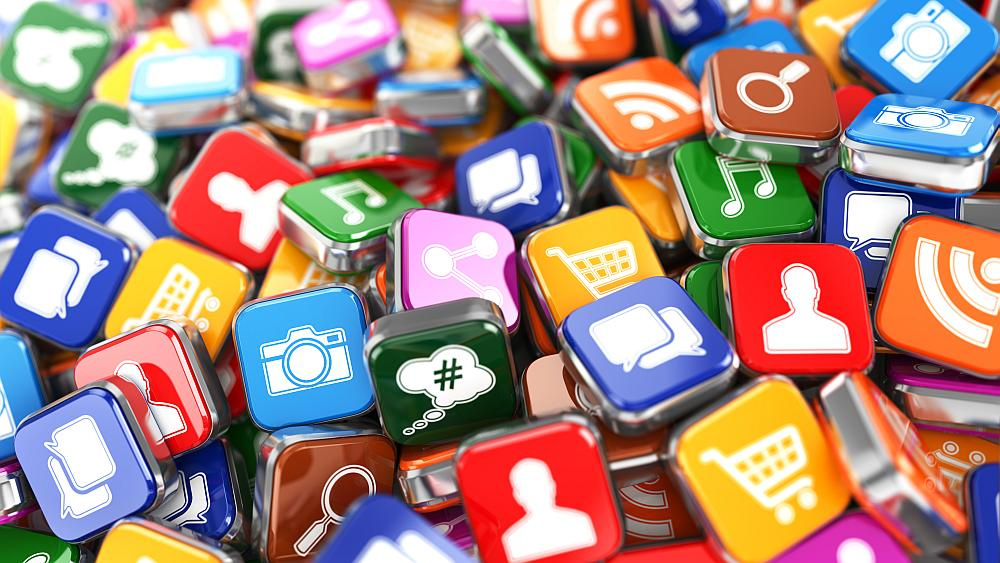Techcrunch has released
reflections on how moderators in the Appstore store clean and clean the applications. The current, regular cleaning of the store began in September 2016. Of the 2 million applications, Apple has deleted several hundred thousand, compared with how much has been added over the past year. All cleaning is logical. Removed applications that are not compatible with modern iPhones and clones of popular applications. Clones administrators cleaned up as spam. They assume that if copies are created using a standard template, then such applications are designed for quick money and do not imply future support and updates. Not to mention the parasitic nature of such developers. New games and new income from such developers will not wait, and competent studios will lose revenue.
Techcrunch notes that short-term streaming music clones have received special attention in this purge, which broadcast pirated music and earn it faster than they can track it. In addition, the review authors talk about Apple’s new changes in recommendations for application developers.

New items in the recommendations traditionally appear after the Apple conference. This time, Techcrunch’s attention was drawn to the wording from clause 4.2.6 - “Applications created from a commercialized template or application creation service will be rejected.” In the absence of comments from Apple, which is also quite traditional, the authors of the review are wondering - how far will the store administration go at picking on the means of creating applications? For the line between cloning and using the same application creation platform is quite thin. The use of platforms is quite normal and quite common. How to distinguish a clone created on a single platform?
To the wording about template applications, the author of Techcrunch also has a number of questions. They propose to separate clones, parasitic on the popularity of the parent game, and disguise it in order to spread advertising and subscription viruses. A good example of this is that an application from the top in the “performance” category, using small print, signs a user for $ 400 a month and with only 200 inattentive users who become subscribers, can earn a million dollars a year. A lot more people downloaded the application.
This case
is completely fresh and the application has been in the top for more than 2 months, despite the fact that the description of the functionality is contradictory and incomprehensible, the developer status is stated as an individual, and the unobtrusive writing off of money for imaginary security should have caused at least some of the hundreds of thousands who downloaded him. Johnny Lin, who has noticed this application, describes other examples as fraudsters collect money in the AppStore, slightly masquerading as useful analogs. Scammers like these have nothing to regret, but honestly taking advantage of the tendency to automate the development of a “one click” new Apple requirement may create problems. You will have to convince the store administration at least that you are not a plagiarist.
In principle, Apple even from copies of popular games should receive its 30%. Why does he throw them out of the app store? The fact is that from the sale of applications, the corporation received $ 30 billion for all 9 years of the store. And from the sale of gadgets, Tim Cook and Company received dozens of times more. In the first place is obviously user convenience. From this indirectly depends on the demand for new devices. Finding new applications for the user is harder. Even a special search does not really help. Each of the 25 categories has an average of 80,000 applications. In addition, Apple administrators are not too brutal, no matter how feared in Techcrunch. The current purge has affected no more than 10% of them, and advertising fraudsters, as written in the article at the link above, are fully included in the tops of their categories.
Apple will traditionally give detailed explanations of the new recommendations after numerous requests from developers. In the meantime, remember what else the AppStore administration is blocking.
Regularly affected by the Appstore moderators according to
cheatsheet :
- developers of anonymous social networking tools
- game developers, on publicly condemned topics (imitation of drug trafficking, immigrant smuggling, nudity)
- communication applications where paid users had privileged functionality
- jokingly unethical baby care apps
- religious motif applications
- applications on the topic of working conditions at Apple and its plants
- games that reveal the personal data of the participants
- applications that have root certificates installed
- applications that developers have bought or promoted with bonuses positive user feedback
- games involving the emulation of a different OS in their work
- torrents and music downloaders from pirated sources
- fake online shopping
In principle, cleaning, or moderation, of a store is almost a constant process. Despite the best efforts of administrators, cutting off about half of the developers' requests for the inclusion of new software in the store, every 8 hours as many applications are loaded into the AppStore as there were when they started up in the store in 2008. And users generally welcome these cleansing.
Although a slight inconvenience to me personally, the race for technical excellence still delivers. When buying new iPhones, I lost 2 or 3 applications in this way - simple but convenient, which were no longer maintained or updated, but I would use them for a long time.